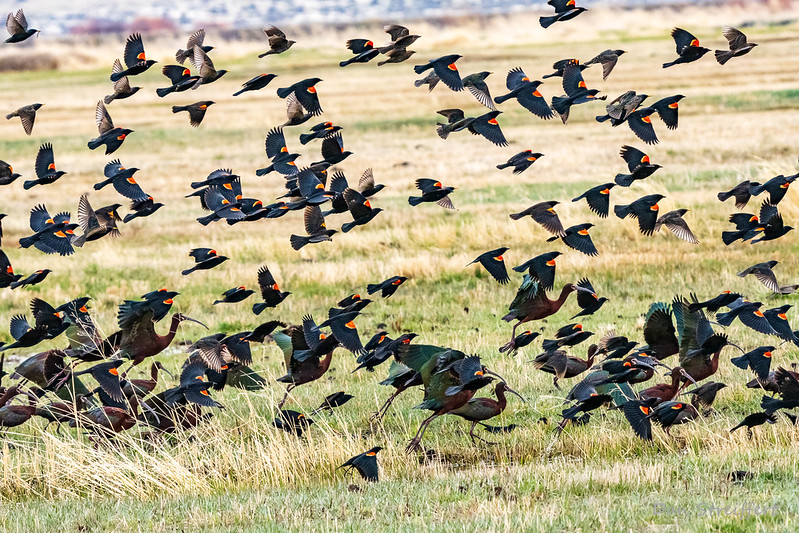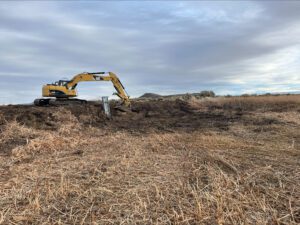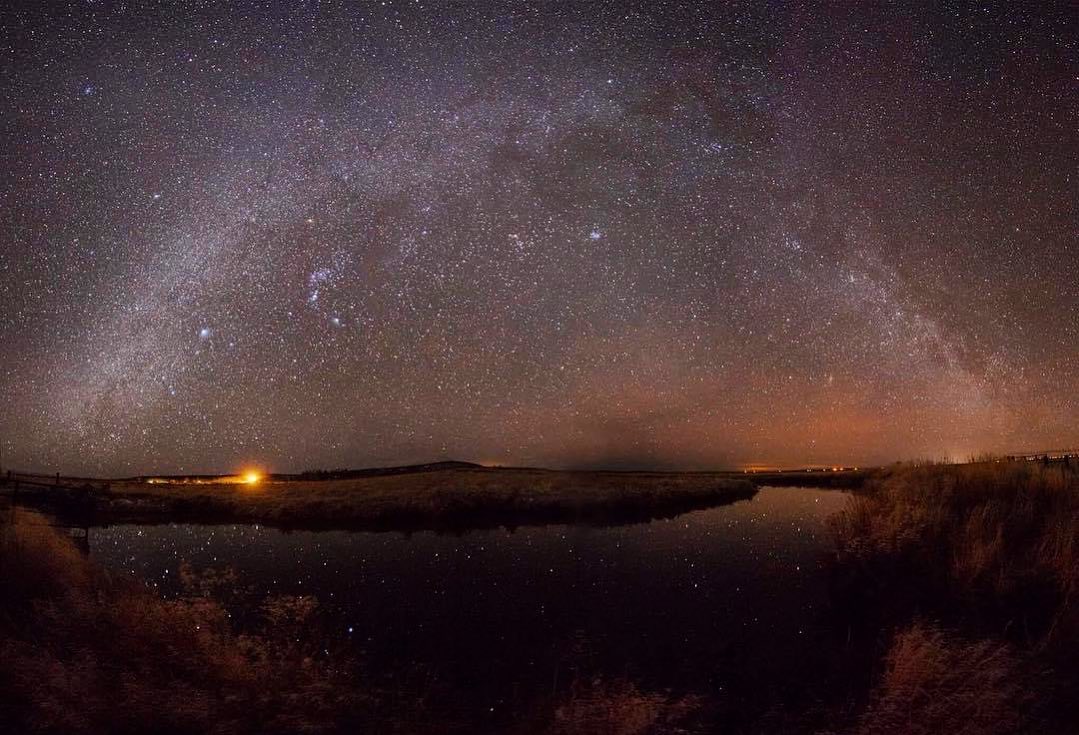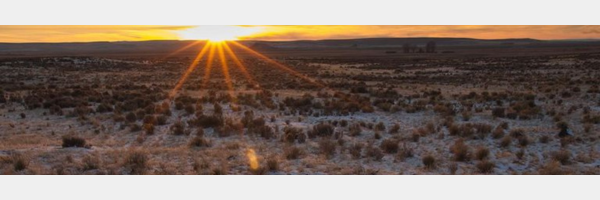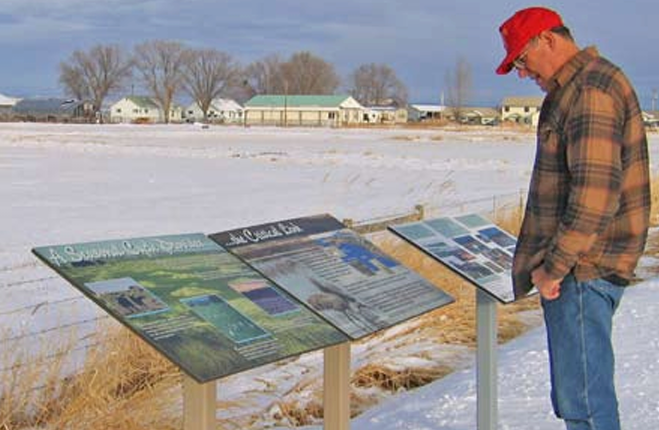
To me, a handful of words tell you all you need to know about April at Malheur NWR – everything is in motion.
After a long and quiet winter, the natural world is stirring. Migratory birds – waterbirds and songbirds alike – are surging northward toward their summer breeding grounds after wintering in relatively mild places like California’s Great Central Valley. Some species traveled as far south as Central America to avoid the cold. Throughout April, flocks of numerous species will arrive at Malheur to feed and rest.
At the same time, gravity and the arrival of milder spring weather are powering another form of motion. In mid-March, after a round of early spring rains, the Donner and Blitzen River rose to over a 1,000 cubic feet per second, refilled Marshall Pond at refuge headquarters, and sent welcome water onto the Malheur lakebed. Excellent news indeed! And as this winter’s snows begin to melt on Steens Mountain, we can expect these flows to continue.,
All this welcome motion in the natural world attracts another sort of activity – the human world at Malheur is also coming to life. During the frozen months of mid-winter, refuge staff work largely in quiet isolation, with few visiting the refuge’s grand open spaces. But now that surges of spring birds are arriving, so are visitors. April, in fact, is a premiere month for visiting Malheur.
Spring also brings new energy to our organization. After four months of winter hibernation, our Crane’s Nest Nature Store has opened for the 2023 season with a renewed stock of visit-enhancing merchandise. Stop by the store every day but Wednesday or Thursday and meet Miguel, our new store manager. He’ll be happy to share his enthusiasm about being part of the seasonal awakening at Malheur.
Finally, allow me a moment to remind that when you do come to see us this spring, please put the refuge’s wildlife first. Many of the migratory birds that pause at Malheur to refuel have already flown hundreds or even thousands of miles. They’re hungry and often exhausted when they arrive and deserve some space and respect. Let’s make sure that we give them the space and quiet they need.
See you out there.
– Wm. Tweed

